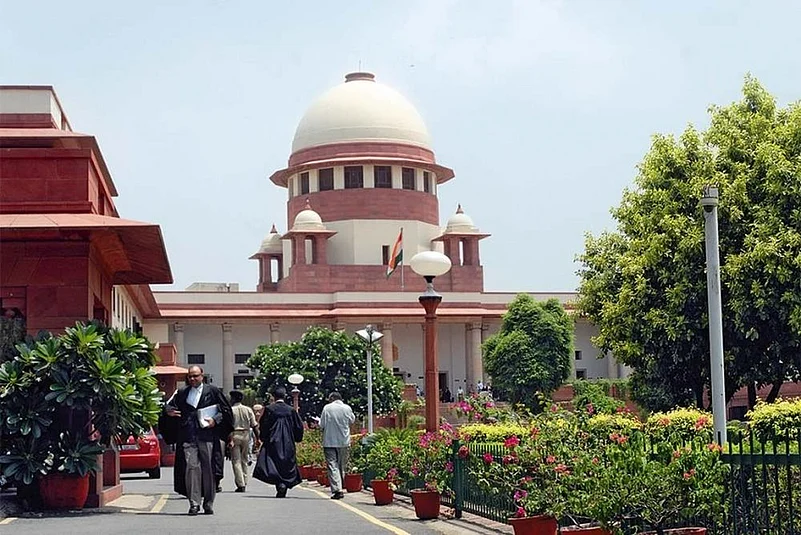The Supreme Court today refused to suspend its March 20 order on SC/ST Act, and asked all parties to submit detailed replies within two days. The matter will be heard again after 10 days.
The Supreme Court, while hearing submissions by the Attorney General in the centre's review petition against its verdict, observed that it is not against the act at all, and is only concerned about the innocent getting punished. The apex court declined to keep in abeyance the March 20 SC/ST verdict but says it will consider in detail Centre's review petition.
"We have not diluted any provision of SC/ST Act and only safeguarded interest of innocents from being arrested, " the SC said, adding that "provisions of SC/ST Act cannot be used to terrorise the innocents."
Advertisement
The Supreme Court asked Attorney General, "How will AG function if allegations are raised like this?..Why does government want people to be arrested without verification," News18 reported.
The Amicus Sr Adv Amerendra Sharan reportedly told the bench that "UOI in its stand has earlier admitted that the SC and ST Act has been misused and on the ground of protests, the court should not hear the review plea."
The apex court was hearing a plea by the Centre seeking to review the March 20 verdict putting safeguards on arrest under the the stringent SC/ST Act. A bench headed by Chief Justice Dipak Misra had agreed to constitute the original bench of Justices A K Goel and U U Lalit to hear the review plea, after the AG said it is an emergency situation as large scale violence had taken place and sought urgent hearing of the review petition today itself.
Advertisement
The union government, in its review petition, said the March 20 verdict has "wide ramification and implication resulting in dilution of the stringent provisions of law enacted under the 1989 enactment. It adversely affects a substantial portion of the population of India being the members of SC/ST. It is also contrary to the legislative policy of Parliament as reflected in the Prevention Of Atrocities Act 1989".
The plea filed by the All India Federation of SC/ST Organisations, a conglomerate of nearly 150 employees' groups, said after the March 20 verdict large-scale nationwide violence had taken place in which several people had lost their lives.
The government today made it clear that it was not responsible for the dilution of the SC/ST (Prevention of Atrocities) Act and asserted that it was fully committed to protect the interest of the backward communities and appealed to the people to maintain peace and harmony.
Making a suo motu statement in Lok Sabha during the Zero Hour on the large scale violence during yesterday's Bharat Bandh, Home Minister Rajnath Singh said there has been widespread anger amongst the people following the March 20 order of the Supreme Court and the people have taken to the streets.
The apex court had on March 20 said that "in view of the acknowledged abuse of law of arrest in cases under the Atrocities Act, arrest of a public servant can only be after approval of the appointing authority and of a non-public servant after approval by the Senior Superintendent of Police (SSP) which may be granted in appropriate cases if considered necessary for reasons recorded."
Advertisement
The top court had also directed that the reasons recorded by the competent authority and the SSP must be scrutinised by the magistrate for permitting further detention of an accused.
To avoid false implication of an innocent, the top court directed that a preliminary enquiry may be conducted by a DSP rank officer to find whether the allegations make out a case under the Atrocities Act and are not frivolous or motivated.
(Inputs from agencies)




















